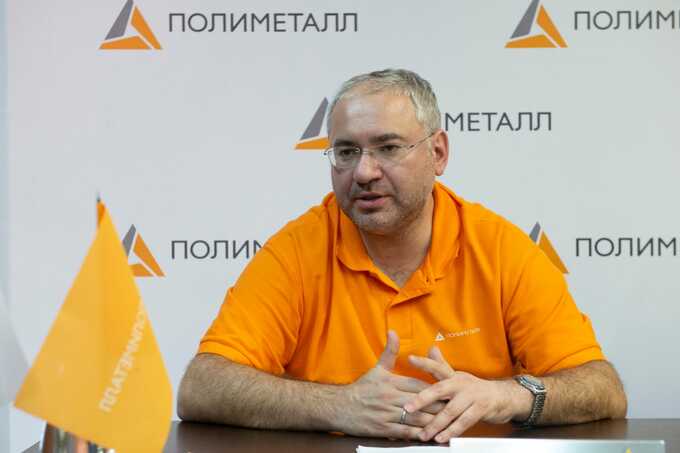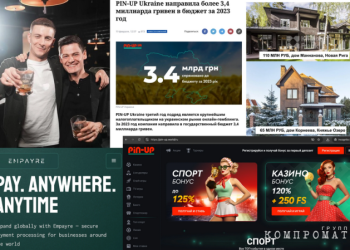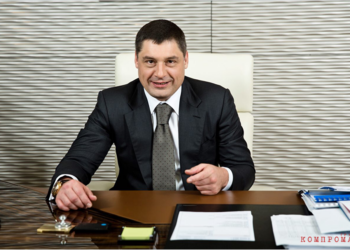Interested people flock to the shine of Polymetal
Who can buy company assets in Russia.
The Russian assets of Polymetal, which the gold mining company plans to sell in six to nine months, have aroused serious interest among major industry players. According to media reports, among the interested parties are Polyus, UMMC, Seligdar, Vladislav Sviblov and even ALROSA. However, according to sources, it will be extremely difficult to sell such a large business in such a period of time, given the need to coordinate with the authorities of Russia and the United States.
Interest in the Russian assets of Polymetal is shown by a wide range of companies, including not only core players. According to several sources, Polyus, structures of Vladislav Sviblov, UMMC, Seligdar, as well as Roman Abramovich’s ex-partner in Sibneft and Highland Gold Ivan Kulakov are considering participation in the deal. In addition to them, ALROSA also discussed the possibility of acquiring. The company is said to have offered to include its Angolan diamond assets in the deal, but Polymetal refused this option. ALROSA said: “We have not received any proposals on this subject, we are not conducting any negotiations.” Polymetal said it does not comment on market rumors. ALROSA is now mining associated gold in Yakutia. Polymetal’s Nezhdaninskoye deposit is located in this region, where the company produced 133 thousand ounces of gold in 2022.
On August 7, Polymetal re-registered from the island of Jersey to Kazakhstan and is going to completely sell assets in Russia in six to nine months, which in 2022 brought the company more than half of EBITDA. The Russian legal entity JSC Polymetal fell under US sanctions in May, but the parent company Polymetal International has so far avoided them. The largest shareholder of Polymetal is the ICT group of Alexander Nesis and partners, and the American investment fund BlackRock also owns a large share (9.9% as of March 15). Free-float – about 75%. During the redomiciliation, the company will lose its listing in London, the main listing will be in Astana.
The head of Polymetal, Vitaly Nesis, explained in August that the sale of assets in Russia was caused by the risk of sanctions, including against the parent company.
He acknowledged that the sale would have to offer a discount, but noted that it would not be the same as in recent deals by Western companies to leave the Russian Federation. Dmitry Smolin, senior analyst at Sinara investment bank, estimates the company’s Russian assets at $2–2.5 billion, including debt. The debt of Russian assets is $2.39 billion out of $2.59 billion of the group’s total debt.
The most valuable asset of Polymetal in Russia is the autoclave at the Amur Mining and Metallurgical Plant (AGMK), which allows processing refractory ores. Independent expert Boris Sinitsyn notes AGMK as an important competitive advantage for Polymetal, “moreover, the second stage, scheduled to be launched in the second half of 2024, will be able to further increase competencies by processing double-hard concentrates.” Experts remind that other major players in the Russian Federation also have such ores, including those at existing deposits.
Vitaly Nesis, head of the Polymetal group, August 9:
“We’re looking to preserve shareholder value, but at the same time, we don’t want to violate sanctions.”
According to sources, there are difficulties on the way to a deal.
Firstly, the period of six to nine months is quite short for such a scale of business.
Secondly, the fundamental price level is an open question. “Assets of this kind and in such quantity have never been offered to the market,” says Sergey Kashuba, head of the Union of Gold Producers of the Russian Federation. “The specificity is also that Polymetal is registered in a friendly jurisdiction. This is a significant difference from the situation with the Canadian Kinross, which sold assets at a discount. I believe the seller will insist on market terms for the deal.”
Thirdly, according to sources, each of the applicants would first of all want to acquire some of the most interesting assets, and not the entire business of Polymetal.
Polymetal enterprises are located in the Magadan and Sverdlovsk regions, the Khabarovsk Territory, Yakutia, and Chukotka. At the same time, for example, Polyus operates in the Magadan region, ALROSA in Yakutia, UMMC in the Sverdlovsk region, Vladislav Sviblov’s companies are located in the Khabarovsk Territory and Chukotka. Polyus refrained from commenting, but noted that the company strategically adheres to the principles of operational synergy in the selection of potential assets for purchase. The rest of the companies did not provide comments.
The cost of platinum group metals approached multi-month lows.
Fourth, the deal will require OFAC approval as Polymetal’s Russian assets are under US sanctions, which could be unpredictable as most of the bidders are also under sanctions. The deal will require the approval of the Russian authorities. To remove counter-sanction restrictions, it is not enough for a company to be registered in a friendly country, for example, in Kazakhstan, Alexandra Berezhnaya, Senior Associate at Intana Legal’s Sanctions Practice, believes. It is necessary that the persons controlling the company be residents of the Russian Federation (in this case, disclosure of the company as a CFC may be required) or friendly countries as of March 1, 2022.
The fact of redomiciliation in itself will not eliminate the need to obtain permission for a transaction in the Russian Federation, since the change in personal law occurred after March 1, 2022, says Bulat Zhambalnimbuev, partner at Better Chance corporate law practice. Now transactions with Russian assets with the participation of foreign persons are regulated by decrees No. 520, 81 and 618. In the case of decree No. 520, a decision of the president will be required, and in the case of decrees No. 81 and No. an asset at a discount, pay a voluntary contribution to the federal budget, provide for a buyback condition.









